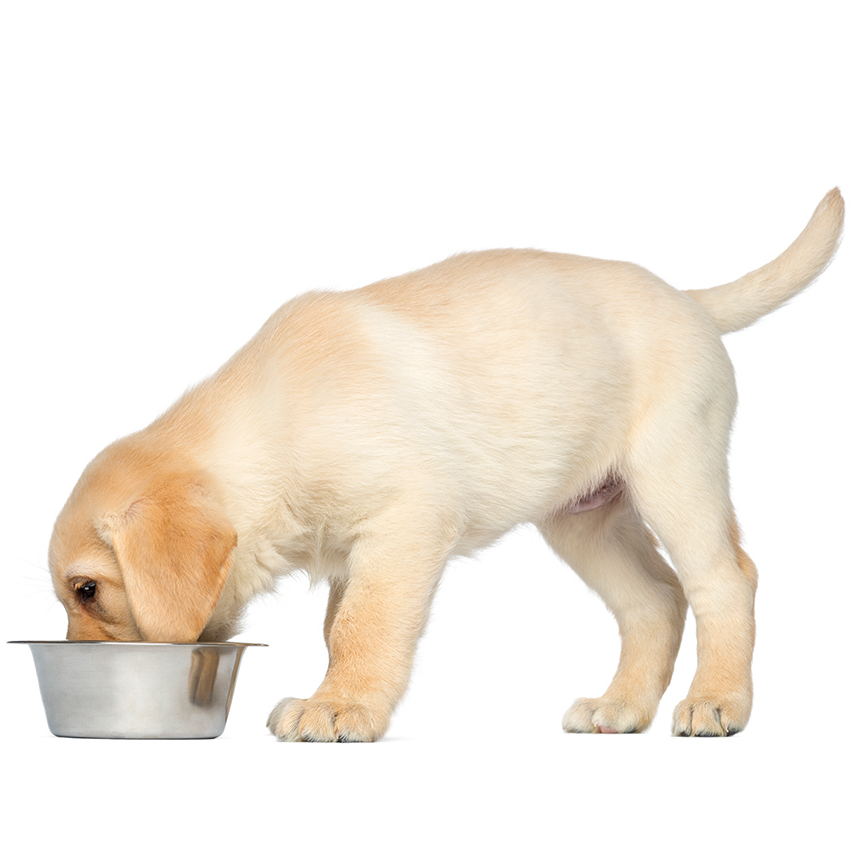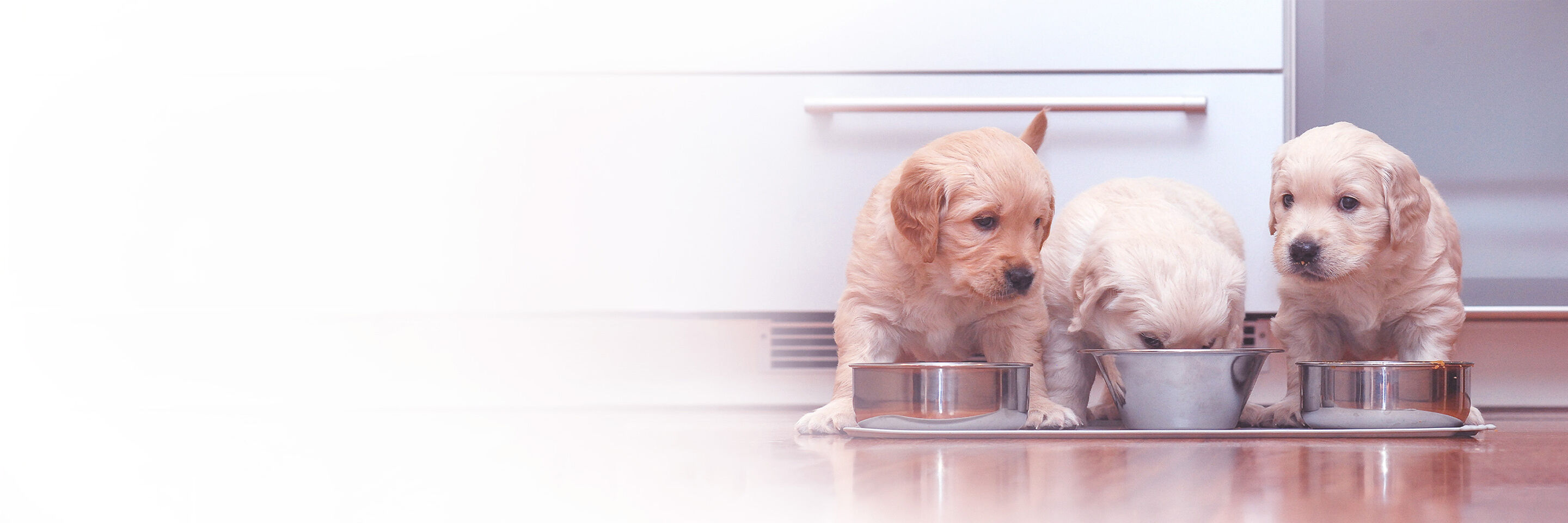The best care from day one
For optimal development, puppies need only their mother’s milk for the first few weeks of life. They should only be given additional food if the mother does not produce enough milk. But puppies should not be given normal cow’s milk – they need special puppy milk, such as our Happy Dog Baby Milk Probiotic with low lactose content and a special probiotic culture to help stabilise the intestines.
From around the fourth week, puppies are generally curious about how solid food tastes, and so take their first steps towards the food bowl. Generally from the sixth or seventh week, at the latest from the eighth week, the mother stops feeding and from then on little puppies only eat solid food.
Transferring from the mother’s milk on to solid food is a big step for a little puppy’s system. To provide support and prevent indigestion, puppies should only be given high quality food puppy food for the first few days. This is also important because young dogs have very different nutritional requirements to adult dogs.
Puppies’ high energy requirements
Anyone who watches their puppy play can easily see that their little bundle of fur is full of never-ending curiosity and playfulness. In fact, puppies are much more active than adult dogs, which is why ‘normal’ dog food for adult pets is not really suitable for them. Puppies need proportionally more calories, and they require higher levels of protein and minerals. With large breed dogs, the correct proportions of calcium and phosphorous are also very important - these ensure healthy bone formation that is not too rapid. Mistakes in nutrition can have lifelong consequences, so it is important to choose the right puppy food.
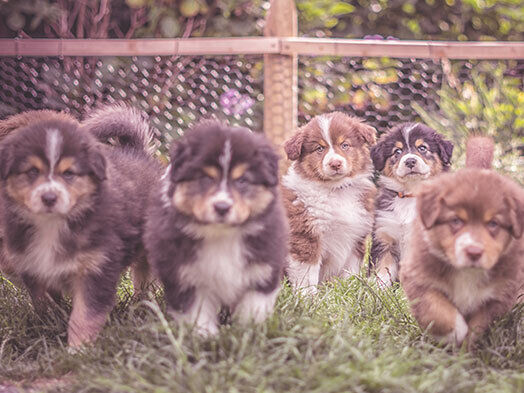
Avoid mistakes in feeding
With Happy Dog dry food you can be confident that your puppy is in good hands - our high quality dry food is perfectly adapted to the needs of junior dogs and puppies. It contains all the important vitamins and nutrients that your dog needs to grow big and strong. And because the energy requirements of a puppy or junior dog depend on their breed, Happy Dog puppy food is tailored to these needs, too - our puppy food caters for small, medium-sized and large dog breeds.
Phase 1
up to 6th month
Puppy: 1st growth phase
The first 6 months are the ‘main growth phase’. During this time, puppies grow very quickly. They also have a greater need for energy and high quality food, given in quantities appropriate to their needs.
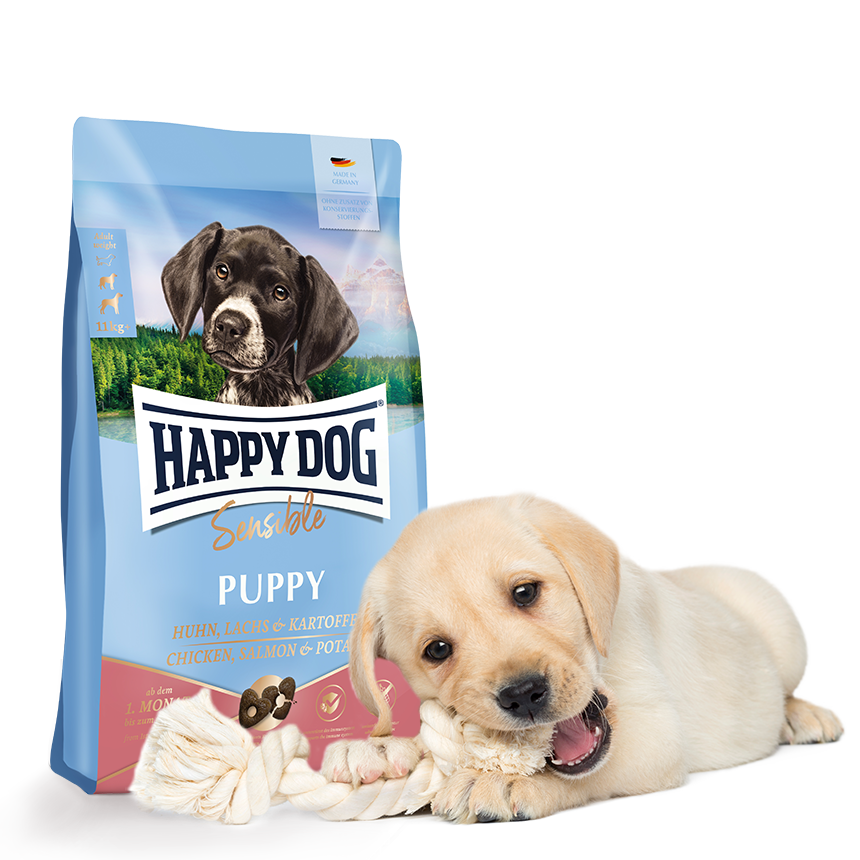
Phase 2
from 6th month
Junior: the 2nd growth phase
It now takes a relatively long time for the junior dog to reach their final weight – 12 to 18 months. To avoid growth disorders, the energy content of the food needs to be reduced. This formulation is the perfect transition food before moving on to adult food.
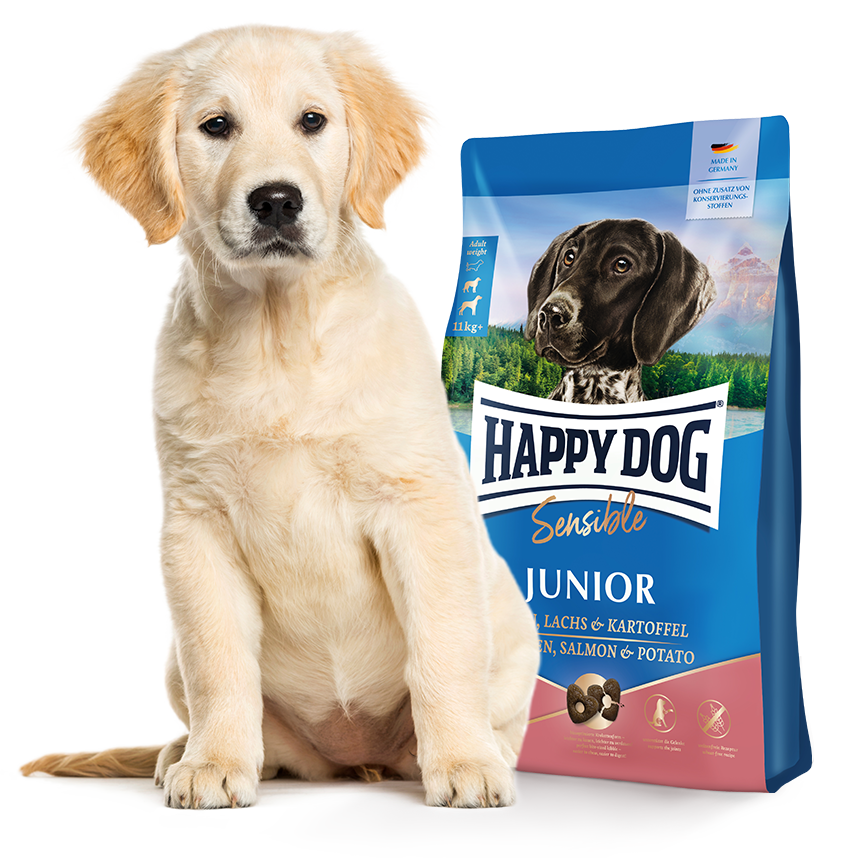
Balanced and species-appropriate nutrition is an essential requirement for optimal development in your junior dog. Growth in dogs over 10kg (adult dog weight) varies at the puppy and junior dog stage, so the formulations in Happy Dog Young products are based on their needs at each respective stage. Puppies will be supplied with everything they need – for healthy growth, a strong immune system, a robust musculoskeletal system, and a shiny coat. Happy Dog Young products combine high quality with optimal care. The first 6 months are the ‘main growth phase’. During this time, puppies grow very quickly. Depending on the breed, puppies at this stage can reach around 75% of their adult weight. There is a correspondingly high need for energy and high quality food, given in quantities appropriate to the puppy’s needs. Junior dogs will take a further 6 to 12 months to reach full adulthood. In the 2nd growth phase, the junior dog’s development is more gradual. Weight gain is slower. To prevent growth disorders, the energy content of the food needs to be reduced.
What about small breeds? Small breeds up to 10kg (adult dog weight) reach full growth earlier than large breeds, and their rate of growth is more even. So for them, 2-phase nutrition is not necessary. For optimal development, our Mini Baby/Junior provides the perfect nutrition for your dog.
Dry food for puppies
Dry food or wet food – which food is better? This is a question asked by many dog owners. In fact, no type of food can be termed ‘better’ than another. It is important for your dog that you choose a dog food that states it is a ‘complete food’. This type of food ensures that the puppy will be provided with all the minerals, nutrients and vitamins it needs.
In addition, dry food has some practical benefits compared with wet food. The intense chewing required strengthens the gums. It is also more hygienic than wet food, because it can be left in the bowl for longer in summer without spoiling, and is easier to dispose of. The food also generally keeps for longer, even once the pack has been opened. It is significantly better for the environment, because there are no empty tins every day. The energy content is higher, so less is required, meaning that dry food is cheaper in comparison.
To ensure that adequate water is provided when feeding your dog dry food, you should make sure that fresh water is always readily available. Ideally, place several water bowls at different locations within the home, to encourage your puppy to drink.
